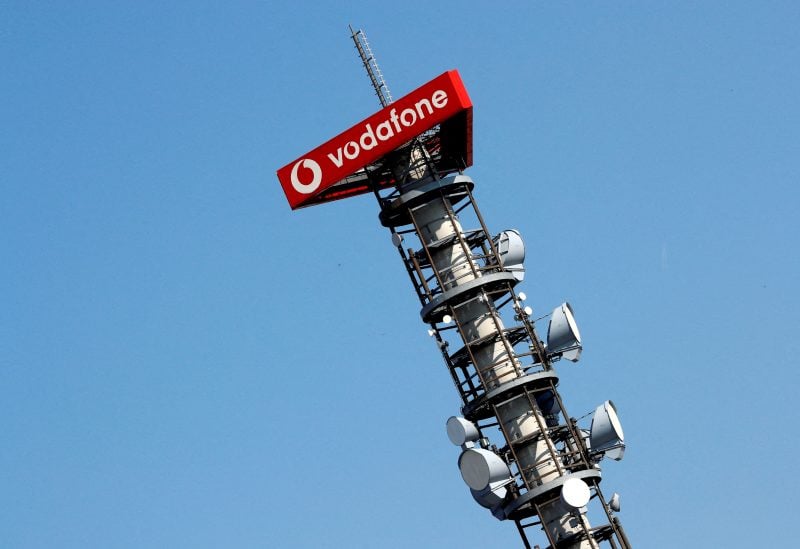
Different types of 4G, 5G and data radio relay antennas for mobile phone networks are pictured on a relay mast operated by Vodafone in Berlin, Germany April 8, 2019. REUTERS/Fabrizio Bensch/File Photo
Vodafone cut its full-year cash flow forecast and earnings guidance, citing higher energy costs and deteriorating performance in Germany, Italy, and Spain.
The European mobile operator’s CEO, Nick Read, said the company was taking steps to navigate the “challenging macroeconomic environment,” which forced it to reduce its cash flow forecast by 200 million euros to around 5.1 billion euros ($5.3 billion).
The British group also said its adjusted core earnings would be between 15.0 and 15.2 billion euros, down from an earlier target of between 15.0 and 15.5 billion euros.
The market was already pessimistic about Vodafone’s prospects before the half-year results, with the cash flow consensus standing at 5.14 billion euros and adjusted core earnings at 15.11 billion euros.
“We are taking a number of steps to mitigate the economic backdrop of high energy costs and rising inflation,” Read said, adding that these included price increases across Europe.
Shares in the group opened 3% lower.
Vodafone reported a 2.6% decline in adjusted earnings in its first six months, which it blamed on commercial underperformance in Germany, its biggest market, and a one-off legal settlement in Italy in the prior year.
The decline in service revenue in Germany accelerated in the second quarter to minus 1.1% from minus 0.5% in the first, it said, mainly due to broadband customer losses.
Its performance in Italy and Spain also worsened quarter-on-quarter, driven by intense competition in the value segment of both countries’ mobile markets.
Britain, however, was a bright spot, with service revenue strengthening after consumer price rises and a return to growth in the business segment, it said.
Read is taking steps to simplify Vodafone and accelerate growth. He has also sought to drive consolidation in Europe.
He struck a deal with Altice to build a 7 billion euro fibre network in Germany last month, and last week he announced the sale of up to half of Vodafone’s majority stake in its masts company Vantage Towers to infrastructure investors.
On Tuesday he announced a new cost savings target of 1 billion euros, focused on further simplifying the group.